~ CLASSES ~
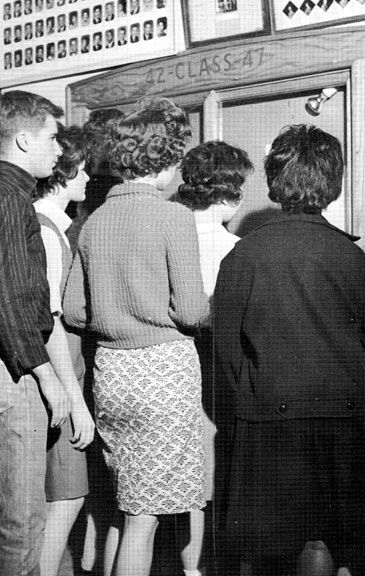
 |
The Mind Learned to Reason . . . The student's mind was trained to develop it reasoning power in several ways. The U. S. government class learned the basic principals of our Constitution and its application to society. The American history class learned about the development of our country and the effort of past events on our lives today. The students in the English and foreign language department learned the fundamental rules of writing and speaking, and the speech students learned to express their ideas. This phase of education was important because in developing the reasoning power of the student, life will be enriched both for him and those around him. |
 English students learned to use the card catalog and the Reader's Guide. |
 A Latin student practiced conjugating verbs. |
The student's hands were
taught many skills. They ranged from the steady hand of the
welder to the precise fingering of the typist. These skills
were not acquired over night, but over a period of many
months. Acquiring these skills meant
long hours of practice for the band member, the typist, and
the physical education student. It meant constant trial and
error for the foods student, the clothing student, and the
mechanical drawing student. It meant gaining co-ordination
and control of the hands for the driver's education and the
shop student. If these students have
learned their skills well, they will have more useful and
satisfying lives in the years to come. Both Learned to Create . .
. The student's hands and mind
worked together to develop their creative power throughout
the year. The biology student explored the world of plant
and animal life. Through the understanding of the
fundamentals of geometry and algebra, the math student
learned their application to higher mathematics and thus
better understood our extensive science and space programs.
The chemist applied the theories of mathematics to work his
equations, then proved them with experiments. The development of the
creative powers of the student was important because it will
determine the progress of our society in the
future.

Hands at Work.
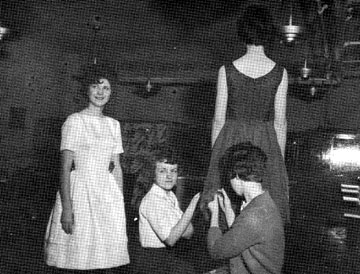
The clothing students put finishing
touches on their projects.
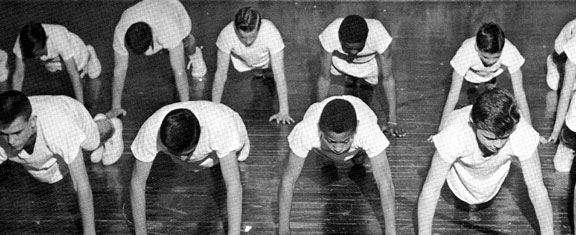
Regular exercise kept the
physical education
boys in good condition.
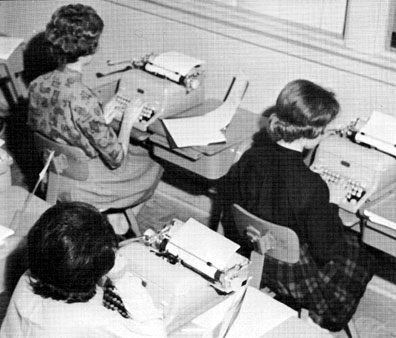
Typing students developed speed
and accuracy.
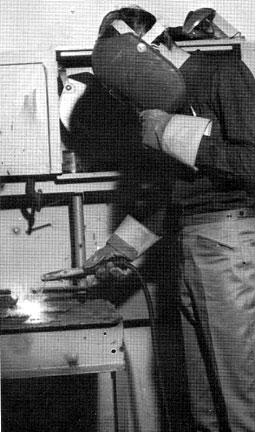
The shop student learned the art
of arc welding.
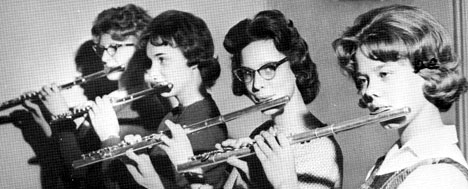
The flute players in the
band
practiced fingering techniques.
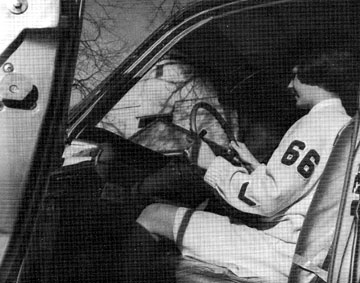
The driver's ed. student acquired
the skill of driving.
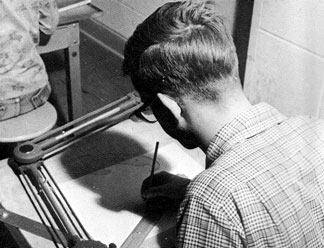
The mechanical drawing student learned
the basics of design.
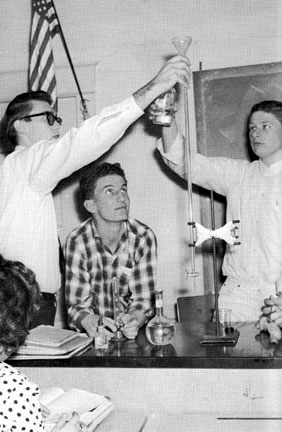
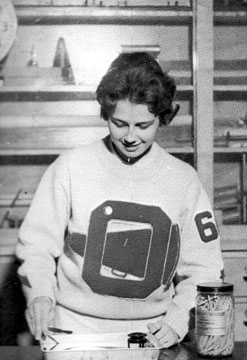
A biology student began
dissection of a worm.
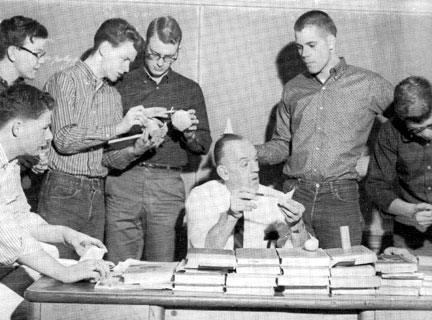
Boys in solid geometry discussed
geometrical figures.